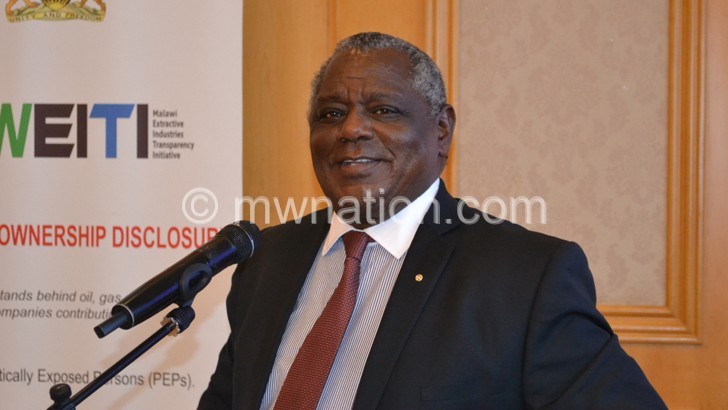Africa must close information gaps in extractive industry
A study on how African governments manage extractive resources, has called upon the governments to make efforts to close the information gaps which exist in the extractive industry.
The report, released on October 19 titled Running the Numbers: How African Government Model Extractive Projects, analyses the capacity of 19 African countries including Malawi on use of financial models, which stimulate a simplified version of a real world project to determine their financial benefits to the countries.

“Increasingly, African governments are adopting these models to assist in fulfilling their roles as trustees of extractive resources on behalf of citizens. The models can help simulate the consequences of different fiscal terms on extractive activities; inform government’s negotiating position for resource contracts, leases and production sharing agreements; and inform ex-post assessment of revenue streams,” reads the report in part.
Produced by the African Development Bank (AfDB) and a Berlin-based firm OpenOil released on October 19, the report said there is a substantial gap in access to data that is key for financial models on the continent.
In an earlier interview Chamber of Mines and Energy President, Dean Lungu said Malawi is making strides in closing the gaps with the launch of the Extractive Industries Transparency Initiative (EITI).
The report advocates for governments to improve internal business processes and address the large gaps that exist between information available to different agencies, departments and ministries.
The countries that were studied include Angola, Botswana, Cote d’Ivoire, Gabon,Ghana, Kenya, Liberia, Madagascar, Malawi, Mauritania, Mozambique, Namibia, Nigeria, Republic of Congo, Tanzania, The Gambia, Uganda, Zambia and Zimbabwe.
Locally, the civil society and concerned citizens have been decrying the culture of secrecy in the extractive industry for some time now.
In September 2016 Human Rights Watch released a report showing how Malawians have been left in the dark about risks mining activities pose to their lives.
Government also came under fire over the secrecy surrounding Kayerekera Uranium Mine agreement.
The report has been hailed as the first of its kind in Africa by the two organisations and hope it will stir debate within the continent’s mining sector and contribute to countries getting more out of their mining projects.





